What’s the Buzz
The Bee Healthy Blog
How To Live With Anxiety
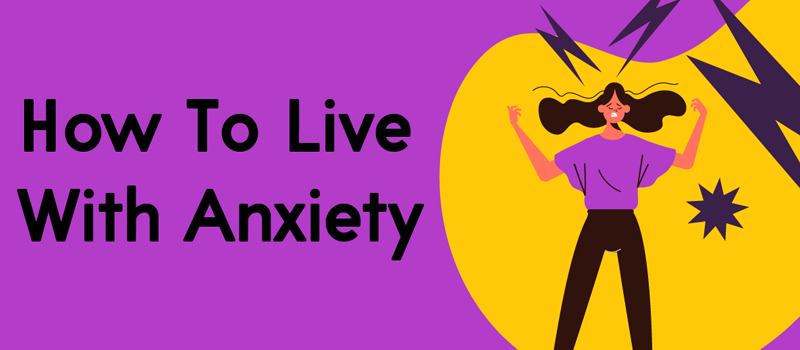
A guide to taking control of your anxiety and living your best life
The National Alliance on Mental Health states that over 40 million Americans suffer from some type of anxiety disorder. Their studies show that 19.1% of adults in America suffer from the disorder and 7.3% of children do too.
Anxiety can be caused by many different things - ranging from pressure at work, poor diet, and genetic issues. After 2 years of lockdowns and not being able to see our loved ones, anxiety is at an all-time high across the world.
Symptoms of anxiety include shortness of breath, spinning vision, and elevated heart rate. Long-term anxiety can damage a person's immune system and lead to high blood pressure.
Many people are experiencing increased anxiety, and some are experiencing the disorder for the first time because of the pandemic. Whichever situation you find yourself in, you have come to the right place.
In this article, you will find a guide to anxiety and how to live with it. We will talk you through how the disorder works and affects our bodies. Then we will go through a series of coping mechanisms that will help you enjoy your life while living with anxiety.
What Is Anxiety?
We want to begin this article by talking about what anxiety is. Many people think that anxiety is random and happens for no reason. This is not the case. Yes, the body and mind can be so out of sync that anxiety attacks can feel random. However, most of the time, our mind is just trying to ignore the problems.
Knowing what anxiety is and why it affects our bodies the way it does can be liberating for many people. When you start to feel anxiety, you can tell yourself that there is nothing wrong - our mind is just releasing survival hormones.
Anxiety is the result of our fight or flight response. Our brain releases adrenaline that often causes our body to have a panic attack.
The human brain hasn't changed very much in the last million years. But the world has. Our brain was designed for a time where the panic-causing things in our lives weren't work deadlines, but they were wolves. At this time, our fight or flight response saved lives.
However, in the 21st century, we cannot physically run from our problems. Because of this, our body and mind are reacting to situations in a way that does not help us. The sweaty palms, the shortness of breath, and the intense heartbeat are all caused by adrenaline coursing through our bodies.
The fight or flight response produces different reactions in all of us. This is why we all react differently to anxiety and pressure. When we do not harness this response, it can have 3 effects on our bodies.
We can go into fight mode - we get angry, lash out, and want to get everything done quickly.
We can go into flight mode - we can't breathe, we can't sit still, and we struggle to think.
We can also go into "play dead" mode. This is something not many people know about. This mode can cause people to freeze, collapse from exhaustion, and even blackout.
In this article, we will talk you through how to cope with your fight or flight caused anxiety.
The Types Of Anxiety Disorders
Now that we know more about the cause of anxiety let's look at how the disorder manifests itself.
There are three main types of anxiety that we would like to discuss today. These are not the only types of anxiety - if you are worried about the anxiety you are experiencing, you should talk to a doctor or mental health professional.
Anxiety is a complex issue, and it is possible to have more than one type of anxiety, especially if you have experienced a lot of trauma in your life.
Here are the three most common types of anxiety disorders:
Panic disorders
People living with panic disorder feel like they are experiencing random panic attacks, and it can be hard for them to pin down a trigger. It is most common among young adults of 20-24 years.
The Diagnostic and Statistical Manual of Mental Disorders, Fifth Edition (DSM-5)Trusted Source defines a panic attack as “an abrupt surge of intense fear or intense discomfort that reaches a peak within minutes.”
There is no concrete cause of panic disorders. Some doctors believe it is caused by the mind and body being pushed out of sync by stress. Others believe it is a genetic issue. While others believe it is caused by the changing hormone levels in the bodies of young people.
Social anxiety
Social anxiety sufferers will feel out of place when they are surrounded by people. They will panic when they meet new people and when spending time with people they know.
They will often worry about being judged and about what others are thinking. They will get so carried away by these thoughts that they will read too much into situations and cause themselves more panic.
Social anxiety can affect people's ability to make friends, work, and study. It is a debilitating issue that can lead to other mental health problems like anorexia and insomnia.
People who have been victims of bullying and harassment often develop social anxiety if they do not deal with their trauma. It is also a genetic issue.
OCD
Obsessive Compulsive Disorder (OCD) can be one of the most debilitating forms of anxiety. Sufferers are repeatedly bombarded by negative and irrational thoughts that lead them to repeat actions.
These repetitive actions can include washing hands, switching lights on and off, counting all the bricks in a wall - and many other actions.
Many people dismiss OCD as superstition, like always wearing your lucky pants to a job interview. However, OCD is not at all like that; it is compulsive and out of the sufferers' control. Many can feel like their world will come to an end if they do not complete their action.
These compulsions often take over an hour to complete and tend to get longer the more anxious the sufferer feels. It can start to take over people's lives and prevent them from doing anything else.
The Causes Of Anxiety
As you will already know, if you suffer from it, anxiety is a complicated disorder. It looks different for everyone, and different situations can cause different reactions for a single person.
It is believed that there are two main causes of anxiety - genetic and environmental causes. Some people are genetically more prone to anxiety and will experience it throughout their lives. Other people may go decades without experiencing it before a certain situation triggers a response in them.
Genetic
Some people are more vulnerable to experiencing anxiety. This vulnerability can be passed on through genetics. Our brain chemistry also affects how we are affected by anxiety and adrenaline releases. This can also be genetic.
Some of us will start experiencing anxiety from a very early age. This is usually because we have a genetic disposition to the disorder. OCD, in particular, seems to be hereditary.
However, genetic anxiety is a lot less common than anxiety caused by environmental factors.
Environmental
Environmental factors cover a wide range of things; the word refers to nearly everything that isn't happening inside the body. So, for example, visiting somewhere new would be considered an environmental factor, as would being embarrassed.
These environmental triggers cause our body to believe it is in danger, releasing adrenaline and other response hormones. For some people, having a traumatic encounter with an environmental factor can cause the response to be repeated every time they encounter it.
For example, people who nearly drown often develop post-traumatic stress disorder (PTSD) and begin to panic whenever they get near the water, even if there is no chance of them drowning in this situation.
Most causes of anxiety are believed to be linked to environmental factors.
Signs Of An Anxiety Attack
As we have mentioned above, anxiety looks different for each one of us. The symptoms we experience will depend on how our bodies react to the sudden release of hormones. However, there are a few symptoms that the majority of people seem to experience. You may suffer from anxiety but not experience any of the following symptoms.
If any of these symptoms last for over an hour, you should go and see a doctor straight away and seek medical attention.
Feeling of panic
Many people feel like their life is about to fall apart while they are having a panic attack. You may also feel like you can't breathe or that someone is following you. You may also feel incredibly down or hopeless.
This is a leftover symptom from our ancient fight or flight response.
Intrusive thoughts
Another symptom of anxiety is having intrusive thoughts. These are thoughts that you have no control over and can feel all-consuming. They are generally irrational and negative. They will often feel like personal attacks and may draw on traumatic experiences you have had in the past.
We will give you advice for dealing with intrusive thoughts later.
Sweating
When we get nervous, our body temperature rises. So, we often find ourselves sweating as our body tries to cool itself down.
We also start to sweat when our other glands are activated. When we are nervous, our adrenal glands are active, and our sweat glands are set off.
Rapid heartbeat
When the adrenaline is released into our body, it is used as energy. It is released to make fighting or running away from predators easier.
As we have no predators to run away from, the adrenaline makes our hearts beat too fast and speeds up our thoughts.
The need to escape
Following on from the symptom mentioned above, when you have anxiety, you may feel the uncontrollable urge to run away from or avoid whatever has just triggered you. Again, you are feeling this because of your fight or flight response.
This is why you may panic when thinking about going to work if you are being bullied there.
Difficulty sleeping
Anxiety makes us overthink, and overthinking can interrupt our sleeping routines. It also causes our body to release adrenaline which our body uses as an energy source - it can take up to 12 hours to burn through this energy.
Exhaustion
Once your body has burnt through all the adrenaline, you will experience a crash (like the crash you get after a coffee or a sugar high).
Anxiety also triggers many people's play dead response. This can make them feel very tired or physically frozen.
Difficulty eating and nausea
When our body is in fight or flight mode, it will not want to stop. This means that many people will have trouble eating - which in turn can cause nausea and exhaustion.
We can also start to feel shaky and nauseous after our body has burnt through all the adrenaline energy.
How To Live With Anxiety
We are now going to share some tips with you about how to live with anxiety. This condition can be challenging to live with, but there are many things that you can personally do to make things easier on yourself.
When you are learning how to live with anxiety, you must be patient with yourself. Anxiety is unpredictable, and some days you may find that none of your usual coping mechanisms work. On these days, be kind to yourself.
We recommend that you try all of the following strategies but only keep doing the ones you feel work well for you.
Breathe
When you start to experience the first symptoms of anxiety, you should try to take yourself away from the situation if you can. Moving away from the trigger can help to alleviate a lot of the symptoms you are experiencing.
Once you are somewhere safe to do so, you should sit down with your back against something solid. This will make your body feel safer and will help to ground you. Next, you should close your eyes and try to do some breathing exercises.
Here are a few that you can try:
Stretch out your hand and curl in your three middle fingers so that your thumb and little finger are sticking out. Use your thumb to block one of your nostrils and breathe in through the other for 5 seconds. Hold this breath for 5 seconds and then block that nostril with your little finger and breathe out of the other one. Repeat this until your heartbeat slows down.
You can also breathe in for 10 seconds, hold your breath for 5 seconds, and then breathe out for 10 more seconds.
Find something that works for you.
Understand your thinking pattern
When you have calmed down a little, you should take out a notebook and write down what happened in the lead-up to your anxiety attack - only if it is not too traumatic to relive it.
Doing this will allow you to understand how you got into that situation and your thought process at the time. Identify any negative thoughts and write them down.
Then take each negative thought and reframe it underneath. For example, "I did something wrong" becomes "I have been given an opportunity to learn from this mistake.” Keep repeating these reframed thoughts to yourself, and soon you will start to believe them.
If you are having trouble keeping your thoughts straight, then don't panic. This is completely natural. You should try this exercise to take control of your thoughts.
Take a second to breathe deeply. Then name 5 things you can see. After that, name 4 things that you can hear. Then 3 things you can touch. 2 things you can smell. And one thing you can taste.
For example, right now:
I can see my dog, my pot plant, my favorite pen, my cup of coffee, and my laptop.
I can hear my dog breathing, my laptop fans, people in the street outside my house, and my washing machine.
I can touch my wooly jumper, my computer mouse, and the cold top of my desk.
I can smell my perfume and my candle.
I can taste the coffee I am drinking.
This is called a grounding exercise, and it helps to pull you out of spiraling thoughts.
Practice mindfulness
There is a lot of overlap between understanding your thinking patterns and practicing mindfulness. In fact, mindfulness helps us to train our minds to be better at understanding our thinking patterns. The grounding exercise above could be considered a form of mindfulness.
Mindfulness asks us to take a step away from our current experiences. To notice what we are feeling and thinking but not to interact with these thoughts. The more you practice mindfulness, the easier it will be to take a step back from a situation and examine it without being overwhelmed by it.
When you are feeling anxious, you can sit back and say, "I am feeling anxious; I know that this is my body going through an ancient chemical reaction because it is trying to keep me safe.”
Other forms of mindfulness include meditation, yoga, and journaling.
Use aromatherapy
Many people find aromatherapy a helpful tool when they want to ground themselves or when they want to create an environment that they feel comfortable in.
It is important that you have somewhere safe to retreat to when you are feeling anxious. This change of scenery will help your body and mind to understand that the "threat" is gone, and they can come out of fight or flight mode.
This room should be softly lit and full of things that you love. We would suggest making your room this haven. Have extra pillows ready for when you want to feel safe and secure. Have a relaxing soundscape prepared, either on CD or on your phone.
You can also use smells to help to create this relaxing feeling and environment. What you find relaxing will be entirely personal to you, and you might have to do some experimenting to find the right ones. But here are some smells that many people find soothing to get you started.
Smells like lavender and lemongrass have been used to invoke a sense of calm and sleepiness in people for hundreds of years. Many people also find lemon a cleansing smell. Sage is also a great scent for relaxing the mind.
Regular exercise
One of the best pieces of advice that we were ever given was to exercise every day. At the time, we didn't understand why it worked; we just knew that it did.
Not only does exercise get your body to release the endorphins that make you feel happy, make you live longer, and make your body feel better, but it also burns up the adrenaline in your body.
You have a set of glands called the adrenal glands - these make adrenaline. They can only make so much adrenaline at a time, so if you exercise regularly, your body won't have any of the hormones to release when it starts to panic.
It does not matter what type of exercise you are doing, as long as you are doing it for long enough to use up your adrenaline supplies.
You may want to go for a walk and listen to your favorite podcast. You may want to go swimming (this is a great option if you have problems with your joints). Or you may even want to join a swing dance class - the world is your oyster.
Start a hobby
Our final piece of advice is to start a hobby.
When we have nothing to do, our minds start to wander. If we are stressed, wandering can trigger anxiety. Many of us like to spend our time watching TV or playing video games but don't realize that they are actually making our mental health worse.
Video games are designed to get us addicted, which in turn makes us more on edge. And TV doesn't engage our brains enough to prevent anxiety from creeping in. Instead, you should look for a more mentally complex habit.
If you are a creative person, you may want to learn an instrument or take up a craft. You may want to start reading again or write your own stories.
If you are more business-minded, you may want to take an online class or learn a new skill that will help you progress in your career.
A great skill to help battle anxiety is to learn how to cook. We will talk later about how your diet can affect your anxiety levels. Running or weightlifting are also great hobbies.
Your hobby will help to keep your mind healthy and to bring some more joy into your life.
Long-Term Strategies Living With Anxiety
Anxiety is not a disorder that can be cured, but it can be lived with. Life is unpredictable, and you won't be able to avoid all the triggers out there. However, by following the advice in this section, you will be able to cope with outbursts of anxiety with more ease and live a happier, calmer life.
Understand your triggers
We briefly mentioned above that you should take time to reflect on what triggers your anxiety. Taking the time to do this will pay off for you in the long run.
By understanding what upsets you and why, you can start to rearrange your life to face fewer triggers.
For example, if you find going to the grocery store triggering, you should start ordering your groceries online. It is just a small change, but it will remove a trolly load of anxiety from your week.
Knowing what triggers you means that you can make smart choices rather than hard ones. Every time you feel anxious, take some time to think about what caused you to feel that way and make a note of it. Then, when you are feeling better, you can look at the situation and work out how to make it less triggering for you.
Not all triggers can be avoided, particularly if you find work anxiety-inducing. But you can reduce the amount of anxiety in your day-to-day life with this process.
Adopt cognitive behavior therapy
Cognitive Behavior Therapy (CBT) is a form of psycho-social therapy that focuses on spotting triggers, addressing them, and rewriting the brain to cope with anxiety. CBT draws on many tools and techniques, new and old, to help people take control of their thoughts.
In this section, we want to briefly touch on 3 CBT methods that have had a hugely positive effect on our lives:
Journaling
Journaling is one of our favorite techniques; it really does change lives.
CBT journaling may not be quite what you think. You are not writing down your secrets or recording the events of your day. Instead, you are recording your moods, thoughts, and anxiety episodes. You can then look back at these notes and find solutions to the problems you are facing.
We also keep a gratitude journal. In this book, we make notes of all the good things in our lives. Harvard scientists found that daily gratitude exercises make you a happier person.
Cognitive Restructuring
This technique encourages people to take a negative thought and reframe it. For example, the thought "I have to sit down and write this article today, even though I'm tired" can be changed into "I have a chance to write an article today that will help people cope with their anxiety.”
Cognitive restructuring encourages you to choose positive thoughts and to look for the positive side of life. The more you look for it, the more you will see it - this is the Tetris effect.
Thought completion
This technique encourages you to take your anxious thought and follow it through to its logical conclusion. This will either highlight the ridiculousness of the thought or help you to solve your problem.
For example, if you are panicking about not having locked your front door - play the situation out until the end. If you have left the door unlocked, what will happen? Either someone will walk in and set off your intruder alarm, or no one will enter the house - either way, you have no problem.
Change of diet
Here is a quick guide to eating for better mental health:
- Cut out the processed foods
- Eat leafy greens
- Eat more fruit
- Consume less sugar
- Cut out the caffeine
It has long been known that what we eat affects our physical health, but in the last 30 years, we have discovered that it affects our mental health as well. Eating more fruit and vegetables can give you a huge mood boost and make you feel better in every part of your body.
Remember: You’re Not Alone!
If you only take one thing from this article, please remember this - you are not alone.
Anxiety can be overwhelming and feel all-consuming, but it is not something you have to deal with on your own. Your friends and family are there to support you, and you can also get help from medical professionals.
Therapists and other mental health professionals are trained to deal with all the issues that can cause anxiety and the problems that the disorder can cause. Many charities will provide you with this help for free if you are worried that you cannot afford therapy.
Summary
You cannot "cure" an anxiety disorder, but you can design your life in a way that means it will not control your life. By taking the time to learn more about the disorder and yourself, you can enjoy your life. Taking time to learn what triggers your anxiety and what can soothe it will infinitely improve your quality of life.


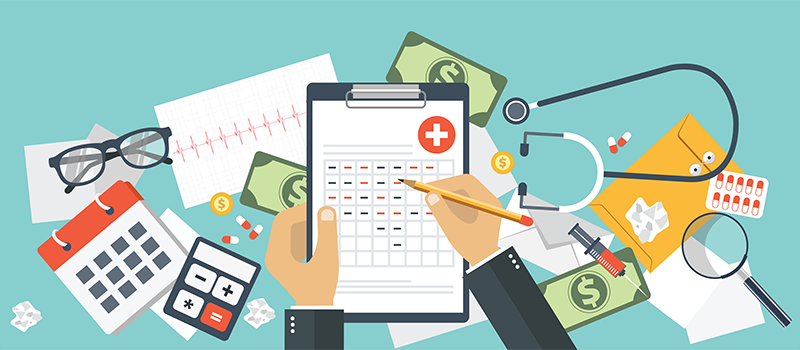
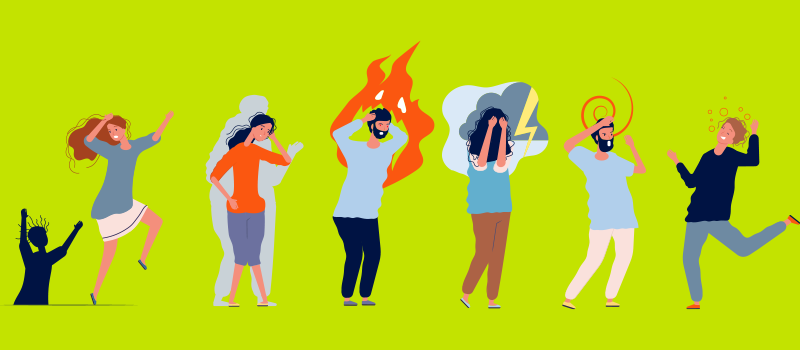
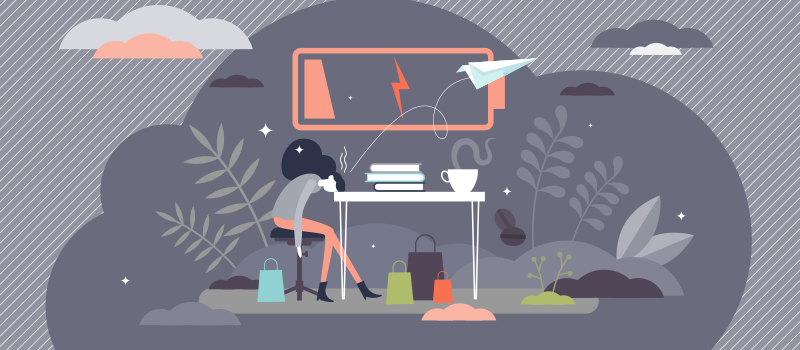
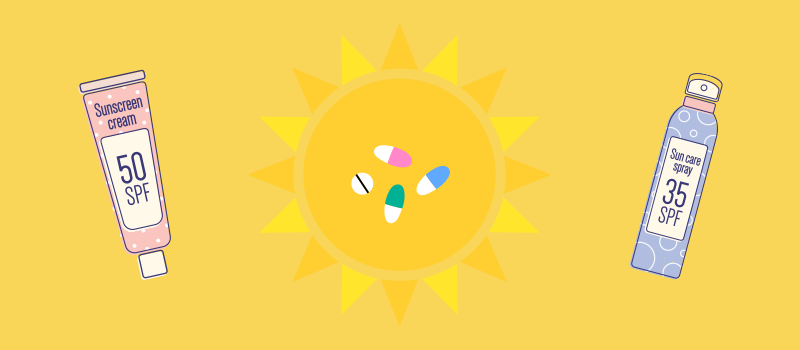
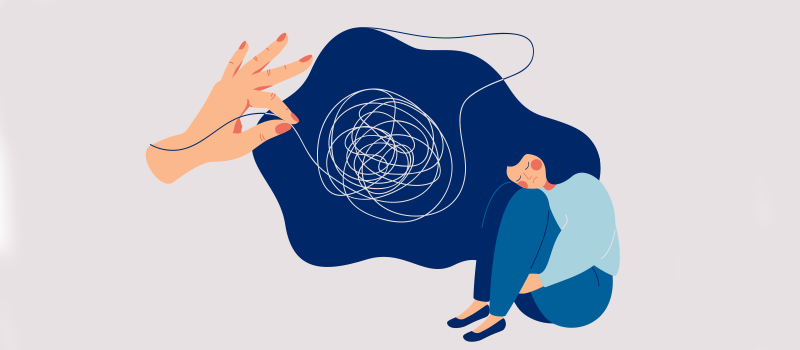
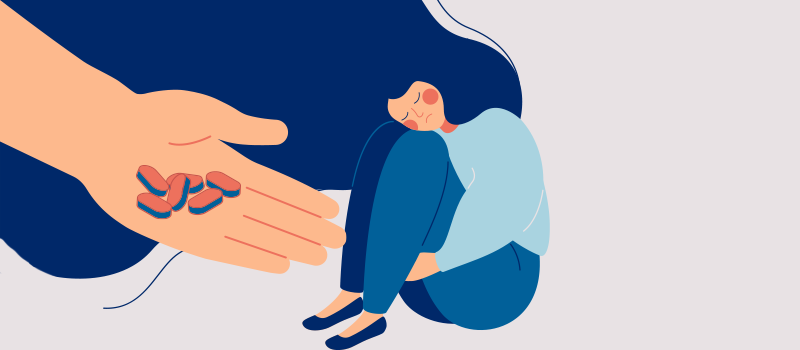

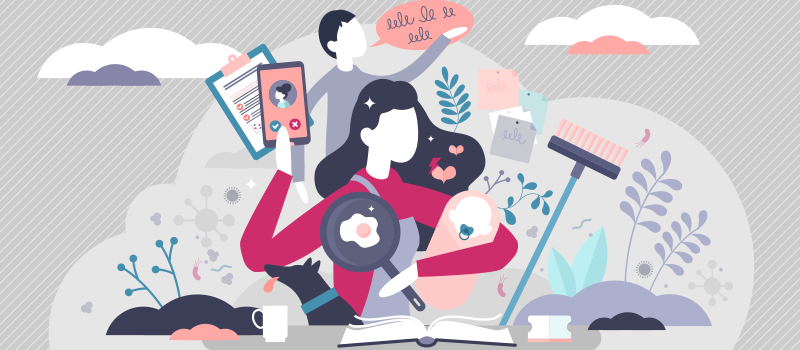


SOCIAL